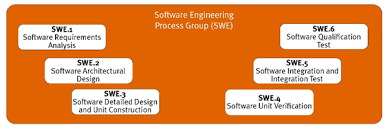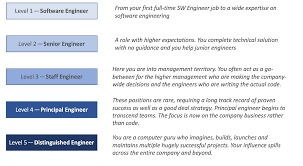Exploring the Transformative Power of AI and ML
The Impact of AI and Machine Learning
Artificial Intelligence (AI) and Machine Learning (ML) are two of the most transformative technologies of our time. They have revolutionized industries, reshaped business models, and are continuously pushing the boundaries of what machines can achieve.
What is Artificial Intelligence?
AI refers to the simulation of human intelligence in machines that are programmed to think and learn like humans. These systems can perform tasks such as problem-solving, understanding language, recognizing patterns, and making decisions.
What is Machine Learning?
Machine Learning is a subset of AI that focuses on the development of algorithms that allow computers to learn from and make predictions or decisions based on data. It involves training models using large datasets to recognize patterns and improve over time without being explicitly programmed.
Applications of AI and ML
- Healthcare: AI-powered systems assist in diagnosing diseases, personalizing treatment plans, and predicting patient outcomes.
- Finance: ML algorithms detect fraudulent transactions, automate trading strategies, and provide personalized financial advice.
- Retail: Retailers use AI for inventory management, customer service chatbots, personalized shopping experiences, and demand forecasting.
- Transportation: Autonomous vehicles rely on AI to navigate roads safely. Traffic management systems use ML to optimize flow in busy cities.
The Future of AI and ML
The potential for AI and ML is vast. As technology advances, these tools will become even more integrated into daily life. Future developments could lead to breakthroughs in areas like natural language processing, robotics, and predictive analytics.
However, with great power comes great responsibility. Ethical considerations such as data privacy, bias in algorithms, and job displacement must be addressed as these technologies evolve.
Conclusion
The impact of AI and Machine Learning is profound across various sectors. By harnessing their potential responsibly, society can benefit from increased efficiency, innovation, and improved quality of life. As we continue exploring these technologies’ capabilities, they promise to unlock new opportunities for growth and development worldwide.
5 Essential Tips for Mastering AI and Machine Learning
- Start with a solid understanding of the fundamentals of AI and ML.
- Utilize high-quality datasets for training your machine learning models.
- Experiment with different algorithms to find the best fit for your problem.
- Regularly evaluate and fine-tune your models to improve performance.
- Stay updated on the latest trends and advancements in AI and ML.
Start with a solid understanding of the fundamentals of AI and ML.
Starting with a solid understanding of the fundamentals of AI and ML is crucial for anyone looking to delve into these transformative fields. Grasping the basic concepts, such as algorithms, data structures, and statistical models, provides a strong foundation upon which more complex ideas can be built. This foundational knowledge enables individuals to comprehend how machines learn from data and make predictions or decisions. It also aids in understanding the various applications and implications of AI and ML across different industries. By mastering the basics, one is better equipped to innovate, solve problems effectively, and adapt to the rapidly evolving landscape of technology driven by AI and ML advancements.
Utilize high-quality datasets for training your machine learning models.
To maximize the effectiveness of your machine learning models, it is crucial to utilize high-quality datasets during the training process. High-quality datasets ensure that your models are trained on accurate and diverse information, allowing them to make more informed predictions and decisions. By using reliable data sources and ensuring data integrity, you can enhance the performance and reliability of your machine learning algorithms, ultimately leading to more successful outcomes in various applications across industries.
Experiment with different algorithms to find the best fit for your problem.
Experimenting with different algorithms is crucial when working with AI and machine learning, as it helps identify the most effective solution for a given problem. Each algorithm has its strengths and weaknesses, and their performance can vary significantly depending on the dataset and specific task at hand. By testing a variety of algorithms, such as decision trees, support vector machines, or neural networks, one can compare their accuracy, efficiency, and scalability. This process not only enhances the understanding of how different models operate but also aids in fine-tuning parameters to optimize performance. Ultimately, this experimentation leads to selecting the best-fit model that delivers reliable predictions or insights tailored to the unique challenges of the problem being addressed.
Regularly evaluate and fine-tune your models to improve performance.
Regularly evaluating and fine-tuning machine learning models is crucial for maintaining and improving their performance over time. As data evolves and new patterns emerge, a model that was once accurate may become less effective if not updated. By consistently assessing the model’s performance using validation datasets and performance metrics, one can identify areas where the model may be lacking. Fine-tuning involves adjusting hyperparameters, retraining with new data, or even selecting different algorithms to enhance accuracy and efficiency. This ongoing process ensures that the model remains relevant and continues to deliver reliable results in dynamic environments, ultimately leading to better decision-making and outcomes.
Stay updated on the latest trends and advancements in AI and ML.
Staying updated on the latest trends and advancements in AI and ML is crucial for anyone involved in the tech industry or related fields. These technologies are rapidly evolving, with new breakthroughs and applications emerging regularly. By keeping abreast of the latest developments, individuals and businesses can harness cutting-edge tools to enhance their operations, gain competitive advantages, and drive innovation. Following reputable sources, participating in webinars, attending conferences, and joining professional networks are effective ways to stay informed. This proactive approach not only ensures that one remains knowledgeable but also opens up opportunities for collaboration and growth in this dynamic landscape.










